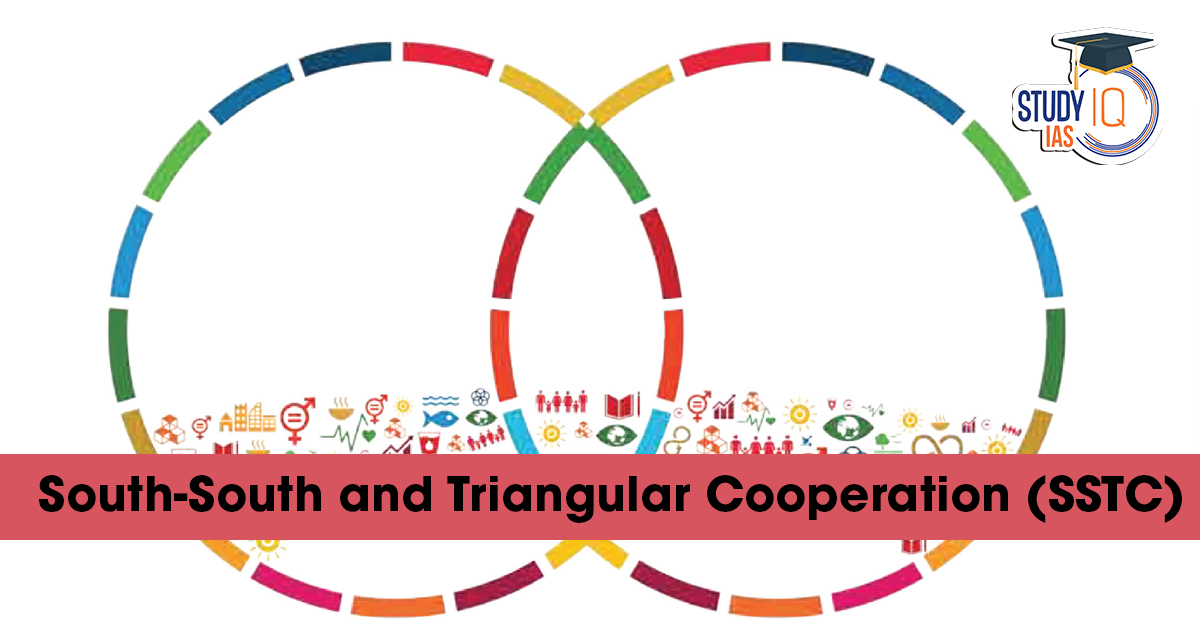Table of Contents
With just a few years left to achieve the 2030 Sustainable Development Goals (SDGs), global cooperation has become more critical than ever. Amid challenges like geopolitical instability, climate change, and widening economic inequality, South-South and Triangular Cooperation (SSTC) has emerged as a transformative framework for inclusive and sustainable development.
What is South-South and Triangular Cooperation?
South-South Cooperation (SSC) refers to the collaboration among developing countries to exchange resources, knowledge, and expertise for mutual growth. Unlike traditional aid models dominated by developed nations, SSC is based on equality, mutual respect, and shared learning.
Triangular Cooperation (TC) builds on this framework by linking developing nations with developed countries, multilateral organizations, and the private sector. This approach ensures diverse funding, technical support, and global expertise, enhancing the impact of development projects.
Origins and Evolution
SSTC was formally recognized through the Buenos Aires Plan of Action (BAPA) in 1978. Since then, it has evolved into a cost-effective, scalable, and contextually relevant mechanism for development. By pooling resources and experiences, SSTC enables countries to address local challenges with innovative solutions while strengthening global solidarity.
Why is SSTC Relevant Today?
-
Addressing Global Challenges:
SSTC helps tackle issues such as climate change, humanitarian crises, and socioeconomic disparities by fostering peer-to-peer learning among developing nations. -
Cost-Effective Development:
Solutions shared under SSTC are replicable and resource-efficient, making them ideal for countries with limited financial capacities. -
Enhanced Accountability and Inclusivity:
Through triangular cooperation, projects incorporate inputs from multiple stakeholders, including governments, civil society, and private sectors, ensuring transparent and people-centered development. -
Strengthening Global South Solidarity:
SSTC amplifies the voice of the Global South in international forums, challenging the traditional North-South aid dynamics and promoting equitable partnerships.
India’s Leadership in SSTC
India has emerged as a key driver of SSTC, guided by the philosophy of Vasudhaiva Kutumbakam – “the world is one family.” India combines moral leadership with practical innovation to advance global development cooperation.
Key Initiatives
| Area | Initiative | Impact |
|---|---|---|
| Global Advocacy | Hosting Voice of the Global South Summits; advocating permanent African Union membership in G20 | Strengthened Global South representation |
| Institutional Mechanisms | Development Partnership Administration; ITEC programme | Trained professionals from 160+ countries |
| Financial Support | India-UN Development Partnership Fund | Supported 75+ projects in 56 countries |
| Technological Innovation | Sharing Aadhaar, UPI, climate resilience models | Enabled scalable and inclusive development solutions |
India’s role demonstrates how a developing nation can lead global development efforts, combining sovereignty, inclusion, and multilateral cooperation.
Benefits of SSTC
-
Mutual Learning: Countries share best practices and avoid repeating mistakes.
-
Sustainable Solutions: Projects are locally relevant and scalable.
-
Diversified Partnerships: Triangular cooperation brings in funding, technical expertise, and global networks.
-
Empowering Developing Countries: SSTC allows countries to take ownership of their development journey.
Challenges and the Way Forward
While SSTC has numerous advantages, it faces challenges:
-
Limited awareness and visibility among stakeholders
-
Funding constraints and dependency on voluntary contributions
-
Need for better monitoring, evaluation, and accountability mechanisms
Way Forward: Strengthening institutional frameworks, enhancing digital collaboration, and integrating private sector expertise can amplify the impact of SSTC.
Conclusion
South-South and Triangular Cooperation is more than a diplomatic phrase; it is a strategic approach to global development, emphasizing equality, inclusivity, and shared responsibility. With India’s proactive leadership and a growing network of partnerships, SSTC offers innovative, sustainable, and people-centric solutions to achieve the SDGs, ultimately shaping a more equitable and resilient world.


 Agentic AI vs AI Agents: Meaning, Differ...
Agentic AI vs AI Agents: Meaning, Differ...
 Prahaar Missile System: Range, Features ...
Prahaar Missile System: Range, Features ...
 New GDP Data and Methodology Update: Key...
New GDP Data and Methodology Update: Key...




















